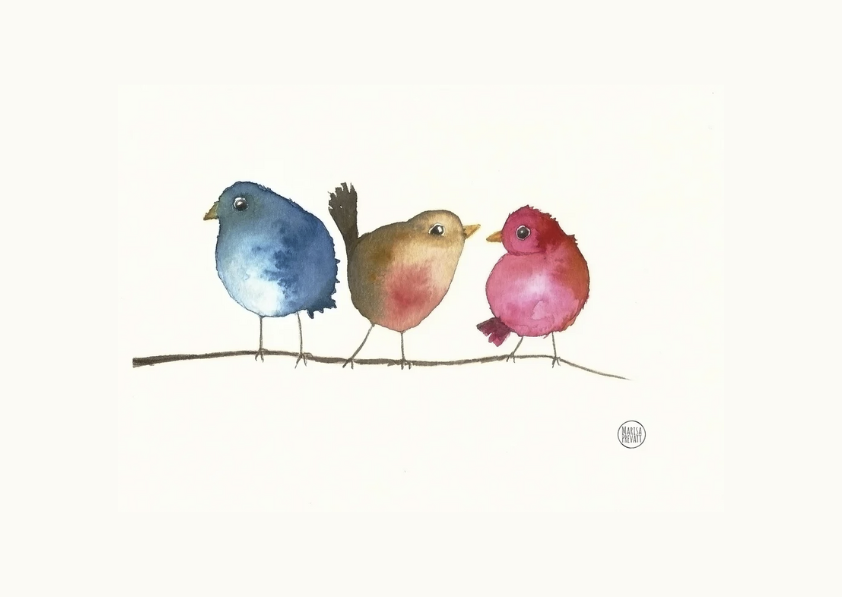A big thanks to Marisa Politano who very graciously allowed me to use her artwork for this blog. When you read on, you’ll understand why I was so keen to use it. Follow her on Instagram https://www.instagram.com/watercolorbymarisa/
This weekend I travelled to an area in NSW close to where I’d lived over 30 years ago. As often happens in life, I’ve lost touch with most of the people I knew while living there and almost didn’t contact someone who, back then, was a good friend. Fortunately, I did contact her –Facebook is handy sometimes – and the moment we met; the gap of time slipped away. There we stood, two young women literally embracing the older women we’d become, with huge hugs, laughter, and pure uncontained joy.
The experience reinforced the faith I have about life. I’m not religious, but I do believe in an inner power we can draw on when things get tough. No matter how bad things get, we all have the ability to pull ourselves up and out of it, however long it takes.
When I left the area for Sydney, my friend’s husband had been killed in a tragic car accident leaving her alone with 3 young boys, a farm, and a half-built house he was building that they lived in. That was bad enough, but she’d met her husband while he was travelling in Europe, English was not her first language, and her own family lived at the other side of the world. How do you get through something like that in your early 30’s?
Fast forward 30 years and she now has 5 children, 4 grandchildren, a husband, a finished house with a pool and extra cabin on the farm, a family business, 2 degrees and a job she loves, working at the local school. As an aside, she threw into the conversation a brush with breast cancer, and (not as an aside) her youngest son’s battle with cancer which he survived against all odds. While I know that so much in her journey would have been horrendously hard, she encapsulated (for me) the game of life, often with unbearable lows countered by highs on a measurable and equal scale. My friend is as resilient as she is joyful, as pragmatic as she hopeful, and most of all, she is bursting with love.
It was a short reunion, we both parted in tears knowing we may possibly never meet again, but also I was left wondering at what it might have been like had we known that day shortly after her husband’s death, when I was encouraging her to scream out her grief on a deserted beach, that everything was going to be all right.
Would I have said, don’t worry about a thing, everything’s gonna be all right?
I often coach people who have turned to food, or alcohol, after some fateful incident or time of deep stress or worry. I joke about “Cheer me up Chips”, “Cheer me up Chocolate. “Cheer me up Carbs”. It’s normal to seek comfort in food, and it’s OK to do so for a short time, unless/until your behaviour creates a health problem and adds further stress to your life.
The inclination to turn to carbohydrates for comfort when feeling unhappy or sad often stems from a combination of psychological, physiological, and neurological factors.
Neurotransmitters and Mood Regulation: Carbohydrates, especially those with a higher glycaemic index like bread, rice, crackers, chips, and soft drinks, can prompt the release of serotonin, a neurotransmitter associated with mood regulation and a sense of well-being. When we feel low, we often seek foods that can temporarily boost our mood.
Emotional Eating: Emotional eating is a coping mechanism for stress, sadness, or other negative emotions. Comfort foods, often high in carbohydrates, are associated with positive memories or feelings of comfort and security. Consuming these foods might provide a temporary distraction or a sense of emotional comfort.
Brain Response to Stress: The stress hormone cortisol, released during periods of stress or sadness, can influence food cravings, particularly for foods high in sugar and carbohydrates. These foods may provide a quick energy boost, albeit temporary, and potentially soothe stress-induced responses.
Cultural and Social Influences: Cultural and social factors also play a role. Families, societies, or communities often associate certain foods, often high in carbohydrates, with comfort and celebration. This association can lead to seeking these foods during times of distress.
Physiological Response: Carbohydrates, especially simple sugars, lead to a rapid increase in blood sugar levels. This surge can offer a temporary energy boost and create a sense of feeling better due to the immediate energy rush.
It’s essential to acknowledge that while alcohol, chocolate and highly processed carbs can temporarily elevate your mood, they often lead to a quick spike in blood sugar levels followed by a crash, which can worsen mood swings and energy levels.
I guess I write all this, inspired by my friend, to say, in the famous words of Bob Marley’s song Three Little Birds
“Don’t worry about a thing, because every little thing’s gonna to be all right”.
If you are going through a hell ride in life, and don’t feel like you can get out of it, understand that some way or another you can and you will, one step at a time get out of it.
Finding healthier coping mechanisms for emotional distress, such as exercise, social support, relaxation techniques, and a balanced diet, is more sustainable for overall well-being and will help you to reach the light at the end of the tunnel quicker than exacerbating the problem with food and drink that negatively fuels your physical and mental wellbeing.
And if you can, try to remember …… every little thing’s gonna to be all right, so please, don’t make it worse.





Recent Comments